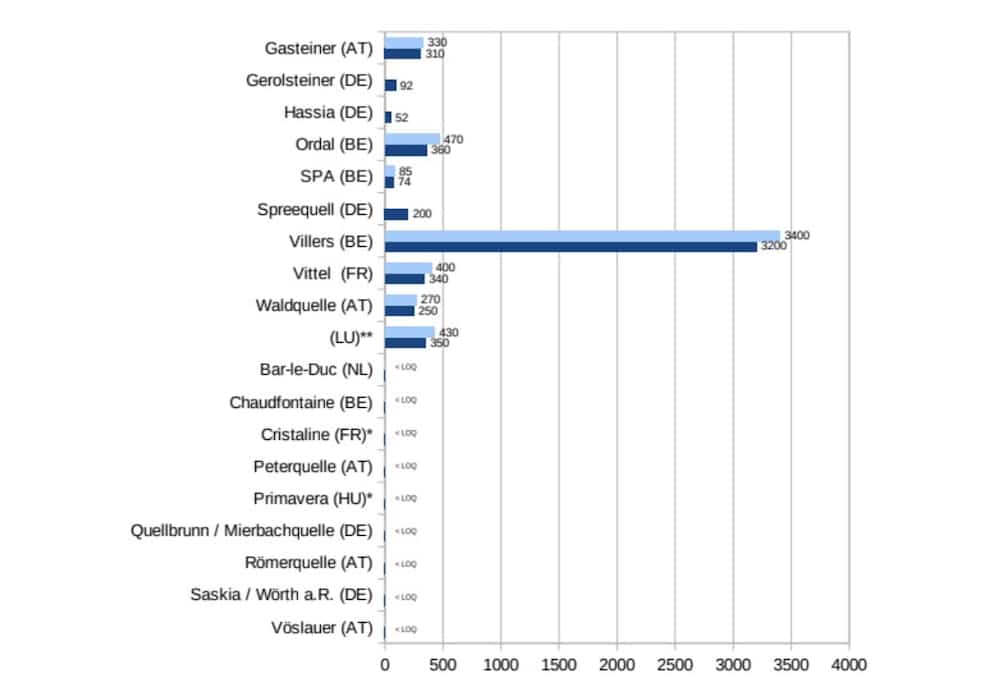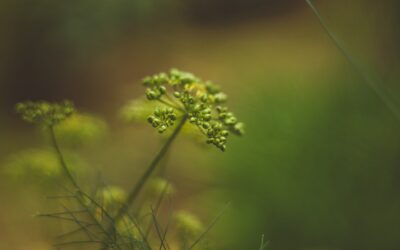This post was originally published on Eco Watch
A new report from Pesticide Action Network (PAN) Europe revealed the presence of trifluoroacetic acid (TFA), a type of per- and polyfluoroalkyl substances (PFAS), in mineral water products sourced from around Europe.
Researchers tested 19 mineral water samples in total, including two mineral water brands from France, four Belgian brands, one brand from the Netherlands, one brand from Luxembourg, one from Hungary, and five Austrian brands. Analysis for the remaining five mineral and spring water brands from Germany were provided by Bund für Umwelt und Naturschutz Deutschland (BUND) for the report.
According to the report, the TFA levels exceeded the limit for pesticide metabolites for drinking water, which is set at 100 nanograms per liter, in seven out of 19 tested mineral water samples. In one sample, the amount of PFAS exceeded the upper limit of PFAS, which is 500 nanograms per liter, as proposed in the EU Drinking Water Directive. The directive is set to take effect in 2026.
The Villers mineral water sample had the highest PFAS levels, reaching 3,200 nanograms per liter in summer testing and 3,400 nanograms per liter in fall testing. Other samples with PFAS present included Ordal, an anonymous Luxembourg brand, Vittel, Gasteiner, Waldquelle, Spreequelle, Gerolsteiner, SPA (Spadel Group) and Hassia.
However, all mineral waters were found to comply with existing PFAS limits set by multiple EU authorities. PAN Europe said that the PFAS contamination was not the fault of the mineral water companies, which may have no way to prevent or remove TFA contamination.
The findings, which follow PAN Europe’s earlier report of PFAS in tap water, have shown that PFAS contamination goes deeper than expected, reaching even farther into the ground past surface water and groundwater to reach mineral water aquifers.
“This has gone completely under the radar and it’s concerning because we’re drinking TFA,” said Angeliki Lysimachou, a co-author of the report with PAN Europe, as reported by The Guardian. “It’s much more widespread than we thought.”
According to a recent study published in Environmental Science & Technology, TFA concentrations in the environment are higher than other PFAS, because TFA is a transformation product for many PFAS. TFA is also common in refrigerants and pesticides.
The results of the TFA levels in mineral water come just as the EU Commission prepared to propose a ban on flufenacet and flutolanil, two pesticide substances that are the primary source of TFA contamination in tap water and groundwater.
“The ban of these two PFAS pesticides proposed by the EU Commission is legally required,” Salomé Roynel, policy officer at PAN Europe, said in a statement. “It is a crucial step towards reducing TFA emissions. There is no place for reprotoxic residues in our water and food. We call on Member States to follow the law and the science. We ask them to prioritise protection of human health and the environment, and swiftly adopt these bans.”
In the U.S., the Environmental Protection Agency (EPA) has excluded TFA from PFAS classification for Agency action. As The Guardian reported, TFA was found in rainwater and air samples in Michigan. In 2020, a Consumer Reports study found PFAS at a rate of more than 1 part per trillion in two major mineral water brands in the U.S.: Topo Chico, which is owned by The Coca-Cola Company, and San Pellegrino, a brand under Sanpellegrino S.p.A, which is owned by Nestlé.
The post ‘Forever Chemical’ TFA Detected in Mineral Water Brands in Europe appeared first on EcoWatch.





0 Comments